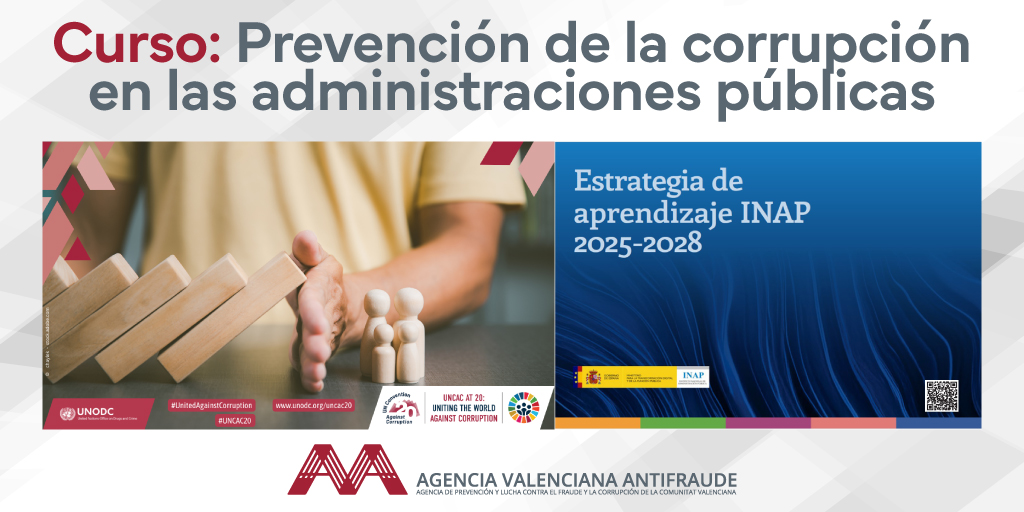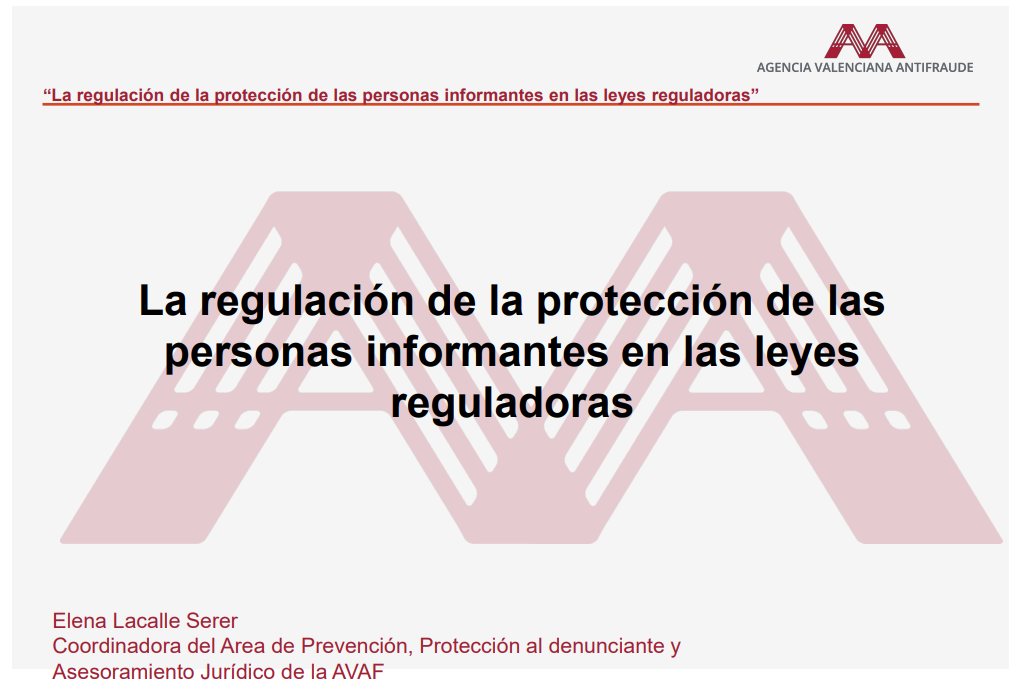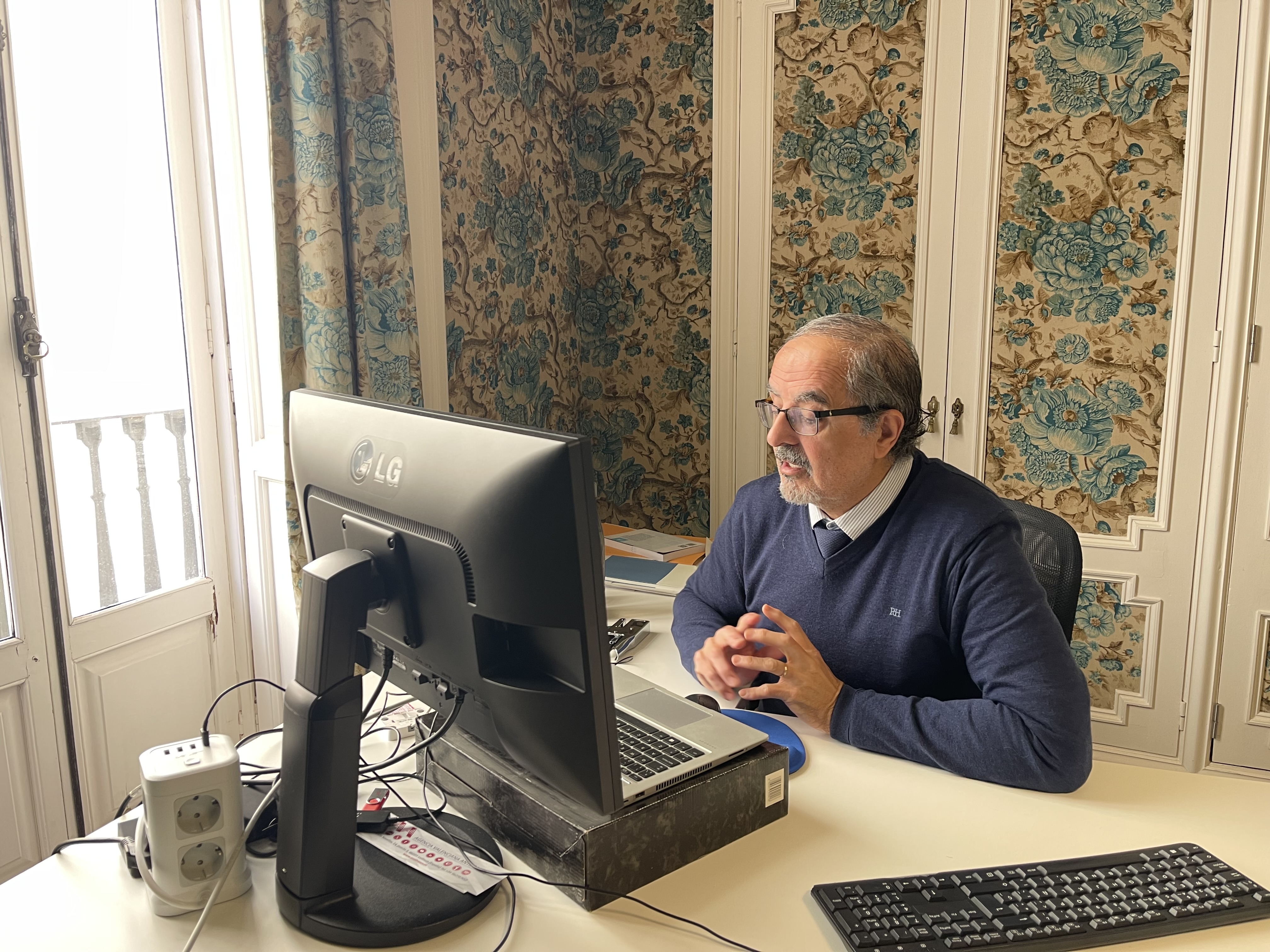Valencia, March 17, 2025. The Valencian Anti-Fraud Agency (AVAF) has concluded the 6th edition of the course “Prevention of corruption in public administrations”, taught in collaboration with the National Institute of Public Administration (INAP).
Held from February 24 to March 17, 2025, the course has had 80 participants, 10 more than in the previous edition, reflecting the growing interest in this training. In this call, the course taught by the AVAF received a total of 723 applications, consolidating itself as a reference in the field.
The teaching team was made up of Anselm Bodoque, acting coordinator of the Area of Training, Participation, Communication and Relations with other entities of the AVAF, together with Pilar Moreno and Marita Oliver, training technicians of the Agency. Throughout the 15 hours of training, they have energized learning and encouraged debate on strategies to strengthen integrity in public management.
Since its first edition in October 2021, this course has been designed and tutored by the AVAF within the INAP’s continuous professional development program, in online mode. The training combines weekly synchronous sessions that promote interaction and the exchange of experiences among students from the Congress of Deputies, the Court of Auditors, the Nuclear Safety Council, the Cervantes Institute, the State Railway Safety Agency, various public universities, provincial councils, ministries, and city councils, such as those of Seville, Torre Pacheco, and Murcia, among others.
The alliance between INAP and AVAF continues to advance in its commitment to promote a culture of integrity in public institutions, contributing to the professionalization and improvement of management in the Spanish public sector.
For the second consecutive year, the Valencian Anti-Fraud Agency will offer two editions of this course due to high demand. After receiving 557 applications, a total of 80 participants will participate in the 7th edition of the INAP-AVAF course “Preventing Corruption in Public Administrations,” which will take place from May 19 to June 9, 2025.




